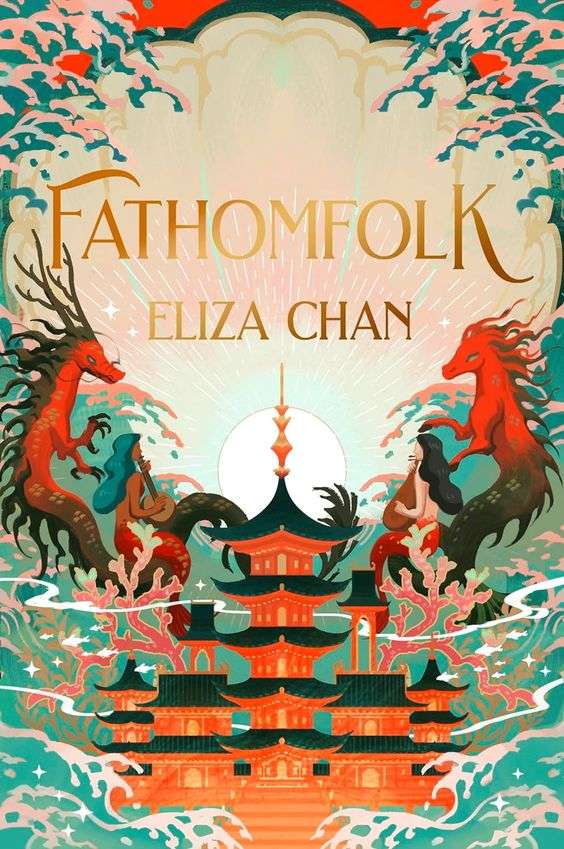We’ve implemented some new protocols around sending us messages via this website. Please email website “at” britishfantasysociety “dot” org for any issues.

For all things fantasy, horror, and speculative fiction
-
Announcement:

Fathomfolk
Fathomfolk by Eliza Chan
Orbit, £18.99, Hardback
Reviewed by Melody Bowles

Fathomfolk is an epic fantasy set in the partially underwater city of Tiankawi. A note at the front of the book says the makeup of the city is inspired by sprawling East Asian metropolises like Hong Kong and Ho Chi Minh City. The city is my favourite part of the book – the contrast between the upper and lower-class areas and descriptions of the waterways, the markets, and the tramways breathe life and colour into the setting.
The core conflict of the book is between the humans and Fathomfolk of the book’s title. The Fathomfolk can shift between human form and the forms of mythical water creatures. I really love the cross-cultural origins of the chosen creatures. Parts of the plot reference The Little Mermaid, and other parts reference myths surrounding Chinese dragons. It’s also nice to see lesser-known creatures like the kelpies (water horses who drown people) and kappa (turtle-like creatures said to adore cucumbers) included. It encompasses a major theme of the book – people of different cultures living together.
The book centres on the immigrant experience – what it’s like to move to a city that’s not your own, how multicultural cities absorb people and how cultures become intertwined. It’s thoughtful and examines the issue from multiple angles. The central characters – all Fathomfolk – take different approaches to life in the city. Dragon Nami joins the extremist group The Drawbacks, who incite violence in the city. Siren Mira works her way up in the military until she is awarded the title of captain, in charge of protecting the city. Sea witch Cordelia pretends to be human – not even her own children know who she really is.
Out of the three narrators, Cordelia is the stand out for me. She’s a sea witch who makes bargains with other people, clearly inspired by the character in The Little Mermaid. She uses her wily plans and shapeshifting abilities to help her family rise to the top of city society – but none of them really know who she is. Although she’s absolutely a villain, her story is so deliciously tragic I couldn’t help but empathise with her. This is part one of a duology, and I am excited to see how her story plays out in part two.
The real-world allegories in Fathomfolk are not subtle, but they’re what makes the book stand out. Read Fathomfolk if you’d like truly excellent world-building with thoughtful commentary on immigration and the immigrant experience.
Explore the blog:
Blog categories:
Latest Posts:
Tags:
#featured (56) #science fiction (25) Book Review (264) events (44) Fantasy (231) Graphic Novel (13) horror (136) Members (62) Orbit Books (48) profile (43) Romance (17) Science Fiction (50) short stories (28) Titan Books (52) TV Review (15)
All reviews
Latest Reviews:
- THE HOUSE ON THE BORDERLAND by William Hope Hodgson
- Monstrum by Lottie Mills
- Mood Swings by Dave Jeffery
- Yoke of Stars by R.B. Lemberg
- Hera by Jennifer Saint
- The Black Bird Oracle by Deborah Harkness
- RETURN OF THE DWARVES By Markus Heitz
- Delicious in Dungeon
- Toxxic by Jane Hennigan
- THIS ISLAND EARTH: 8 FEATURES FROM THE DRIVE-IN By Dale Bailey
Review tags:
#featured (2) Action (4) Adventure (4) Book Review (28) Fantasy (18) Featured (2) Feminist (2) Gothic Horror (3) Horror (14) Magic (3) Orbit Books (3) Romance (6) Science Fiction (5) Swords and Sorcery (2) Titan Books (7)